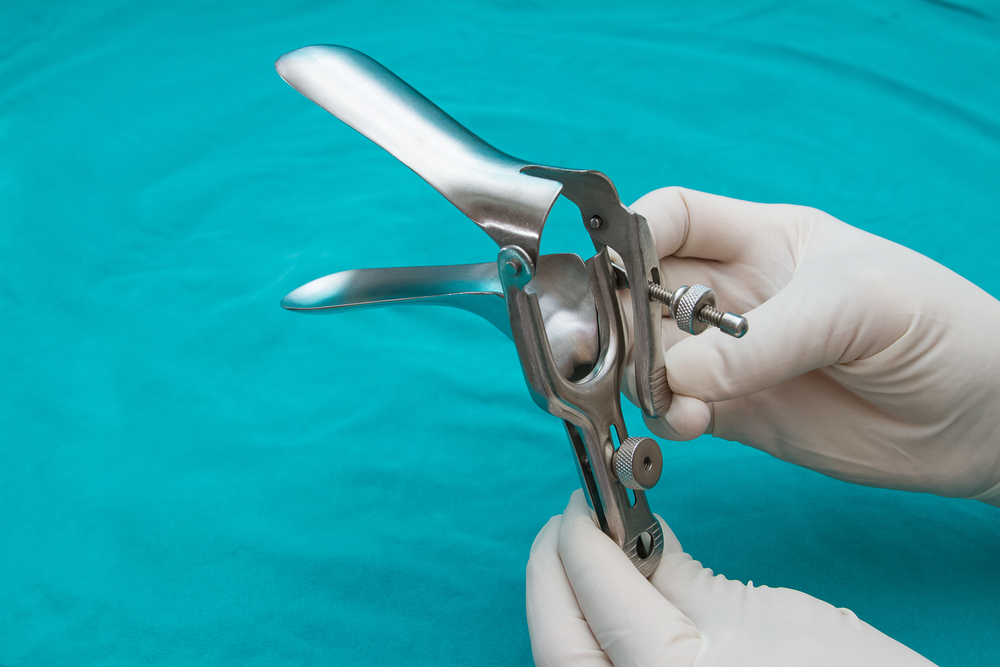IUD Placement for Birth Control: All You Need To Know
Published on 07/10/20
An IUD for birth control, or intrauterine device, is a T-shaped plastic frame birth control device. It is placed into your vagina and cervix up to the uterus between your fallopian tubes. The majority of IUDs are hormonal and release reproductive hormones. These hormones are called progestins and contain levonorgestrel which is a type of progesterone to help prevent pregnancy.
What Is An IUD for Birth Control?
Hormonal IUDs thicken the mucus in the cervix which stops the sperm from reaching or fertilizing an egg. Also, thins the lining of the uterus and somewhat suppresses ovulation. One of the most common hormonal IUD is called Mirena. Mirena can prevent pregnancy for up to five years after insertion. As well as one of several FDA approved IUDs on the market.
There are five types of IUDs available in the US:
- Liletta
- Kyleena
- Mirena
- Skyla
- ParaGard (copper IUD only)
If a patient opts for a hormone-free release IUD, they can choose to place a copper IUD. A copper wire is coiled around the T-shaped device and has strings attached at the end so you can make sure it is in place at all times. Also, your healthcare provider can easily remove the IUD when it needs to be replaced or taken out. Copper is toxic to sperm which helps in pregnancy prevention.
Copper triggers your immune system to prevent pregnancy and may cause your periods to be heavier especially right after it’s been inserted. Unlike hormonal IUDs, copper IUDs like ParaGard are effective immediately. Whereas, hormonal IUDs can take up to 7 days to be effective. And can also last up to 10 years which is much longer than the hormonal IUDs.
How Effective Is The IUD?
If the IUD is used correctly, your chances of getting pregnant are less than 1%. The time frame of how long they last depend on what kind of IUD you choose. Skyla lasts up to 3 years. Kyleena, Liletta, and Mirena last up to 5 years, and Paragard lasts up to 10 years.
The IUD acts as a spermicide by stopping and killing sperm, thickening the mucus in the cervix and adjusting the menstrual cycle. Copper IUDs are effective right away and start working immediately. While the hormonal IUDs can take up to 7 days before they become effective. It’s recommended to wait to have sex or use a back-up form of birth control prior to it’s effectiveness.
How Does My Healthcare Provider Place An IUD?
Your healthcare provider will treat the procedure similar to that of a Pap Smear. You’ll slide your legs onto the stirrups, and your nurse or doctor will measure the size, shape and position of your reproductive organs. An antiseptic solution is used to gently clean the vagina and cervix. Your doctor will have placed the speculum to keep the vagina open and insert a small tube that holds the IUD. Once the tube reaches the uterus, they’ll push the IUD out of the tube into place.
They will then cut the string to hang 1-2 inches into the vagina.
Your doctor may suggest over-the-counter pain medication like ibuprofen to offset any initial cramping when placing the IUD. The procedure can be uncomfortable and may cause additional bleeding or spotting that tends to go away in a few days. It is recommended that an IUD be inserted during your period because this is when the cervix is the most open.
What Are The Side Effects?
Side effects may include cramping or spotting, or both, for a few days after getting an IUD placement. This can last irregularly over the course of three to six months. For the majority of women, this goes away over time.
During the first three months it is more common but unlikely for the IUD to slip out of place. Higher chances are normally during your period. If the string is out of place, chances are the IUD is out of place. To avoid unwanted pregnancy, check with your doctor to ensure that it is sitting properly. Use other contraceptives in the meantime.
If you feel discomfort or pain, or anything out of the ordinary, call your doctor.
Hormonal IUDs:
- Can make periods lighter
- Less Crampy
- No period at all
Copper IUDs:
- Make periods heavier
- Longer Periods
- Worse Cramps
- Irregular Periods
- Spotting
- Cramping or Back Aches for a few days
On the upside, copper IUDs have no hormones so all the hormonal side effects or risks from the hormone IUDs you will never have to deal with.
There is a slightly increased risk of infection, called pelvic inflammatory disease (PID), during the first 20 days after the IUD is inserted. After that, the risk for PID is very low. Very rarely, the uterus can be injured when the IUD is inserted.
Are IUDs Safe?
An IUD for birth control are safe for most women. There are conditions that can cause more complications. Among the many health conditions that may make IUDs less desirable: STIs, pelvic infection, pregnancy, cervical or cancer that hasn’t been treated, or allergies.
Without these conditions, chances are that you’ll have no issue with an IUD. However, paying attention to how your body reacts is still important.
In rare cases, warning signs to look out for:
- The strong has shortened or cannot be found
- Your discharge is different than normal
- Pain or bleeding during sex
- Vaginal bleeding that is heavier than usual
- You might be pregnant
- You can feel the IUD coming out through your cervix
- Unexplained chills or fever
- Bad cramping or pain in your lower abdomen
What Are The Benefits of Getting An IUD?
It’s for sure one of the best ways to prevent pregnancy. First, they’re extremely convenient. They’re not only 99% effective but give you great long-term protection. Once the IUD is placed, there’s no room for error. With a “set-it-and-forget-it” type of birth control. There’s no trip to the pharmacy, no pill to remember to take, and no chances of using it incorrectly, like condoms.
They are also safe to use while breastfeeding.
In addition to the physical benefits, it’s also a one time cost. However, the amount can vary depending on how much your insurance covers. Whether they cover the IUD, the procedure and placement can all depend on your coverage type and the company.
Do IUDs Cause Weight Gain Like Most Contraceptives?
There isn’t a clear answer to whether IUDs actually make women gain weight. Both copper and hormonal IUDs were equally as likely to gain weight as the other. There is really no way to tell if the additional weight is due to the IUD or lifestyle.
There are a few ways to combat unwanted weight gain: manage your weight by diet and exercise or an overall more active lifestyle, or switching from hormonal to copper and vice versa. If you gain weight with one type of IUD, the chance you may not gain weight with the other is higher. Lastly, switch your birth control method altogether. There are many forms of contraception. Weight gain may still be possible but, maybe there’s an option that’s more right for you.
Talk to your doctor about determining factors in additional weight gain and the options you have based on your health conditions.
Can I Feel The IUD?
No. Neither you or your partner should be able to feel the IUD. However, you or your partner may be able to feel the strings that are attached to the IUD. If you are able to feel your IUD, contact your healthcare provider because your IUD may be out of place.
When Should The IUD Be Removed?
Each IUD is different so knowing when to remove them is solely dependent on which options you choose for birth control. New research has shown that some IUDs work longer than originally thought. Talk to your healthcare provider about which time frame works for you.
In other instances, IUDs can be removed at any time by a healthcare provider. However, once removed, preventing pregnancy will need another form of contraception.
When Are IUDs Not A Good Option?
Have a conversation with your healthcare provider to let them know if you recently had a baby, are breastfeeding, born with any disease such as heart disease, hypertension, diabetes, etc.
Reasons you should consider not using an IUD would be if you are:
- At high risk for getting a sexually transmitted infection
- A history of STIs or pelvic inflammatory disease
- Endometrial, cervical, or ovarian cancer and still needs treatment
- Liver disease
- Allergic to copper, for copper IUDs
- Have abnormal reproductive organs
- Pregnant
What Makes A Good Candidate For An IUD for Birth Control?
IUDs can be a great choice for many different reasons.
- 99% effectiveness and almost 100% reliability
- Set-it-and-forget-it no hassle
- Can help treat hormones with conditions like PCOS and endometriosis
- It’s private and only you and your partner know
- Don’t have to remember other forms of contraception such as the pill, diaphragm, patch, etc.
Call Rosh Maternal & Fetal Medicine in NYC
Wondering if an IUD for birth control would be a good for you? Talk to our team by phone or book an appointment online to get started. Call one of our six convenient NYC locations or schedule a video consultation online today about IUD for birth control. They’ve helped thousands of women. Come visit your NYC OBGYN.




